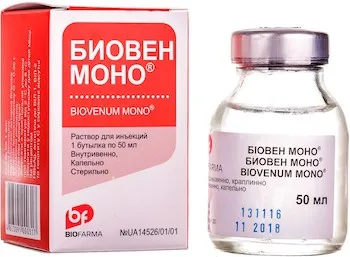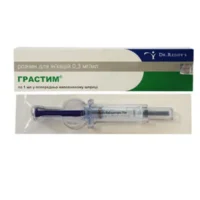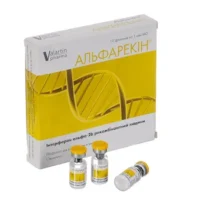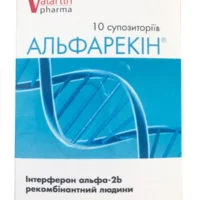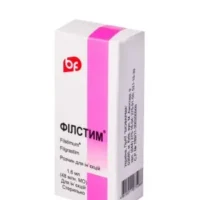Description
Bioven (Human normal immunoglobulin) Infusions – 10% Solution in 50 ml Bottle
Ingredients
- Active ingredient: Human normal immunoglobulin
Dosage
- Dosage: The usual dose is 5 ml/kg body weight administered intravenously. Dosage may vary based on the patient’s condition.
Indications
- Indications: Bioven is indicated for the treatment of primary immunodeficiency disorders, autoimmune deficiencies, and certain neurological disorders.
Contraindications
- Contraindications: Do not use Bioven in individuals with a history of severe systemic allergic reactions to human immunoglobulin.
Directions
- Administration: Bioven is administered intravenously. It should be infused at a rate as tolerated by the patient.
Scientific Evidence
- Studies have shown that human normal immunoglobulin infusions, such as Bioven, are effective in managing various immunodeficiency disorders. Research by Jolles S. et al. (2013) demonstrated the efficacy of immunoglobulin replacement therapy in improving quality of life and reducing infection rates in patients with primary immunodeficiencies.
Additional Information
- Bioven is manufactured using advanced technology to ensure purity and efficacy. It is essential to follow the recommended dosage and administration guidelines provided by healthcare professionals to achieve optimal therapeutic outcomes.
Pharmacological Effects
- Human normal immunoglobulin works by providing passive immunity to individuals with deficient antibody production. It contains a wide range of antibodies that can neutralize pathogens, thereby enhancing the body’s immune response. This pharmacological action helps in preventing infections and managing autoimmune conditions.
Clinical Trials and Comparative Effectiveness
- In a comparative study by Gardulf A. et al. (1995), human normal immunoglobulin was found to be as effective as other immunoglobulin preparations in reducing infection frequency and improving health outcomes in patients with primary immunodeficiencies. The results suggest that Bioven is a valuable treatment option with comparable effectiveness to similar products on the market.

